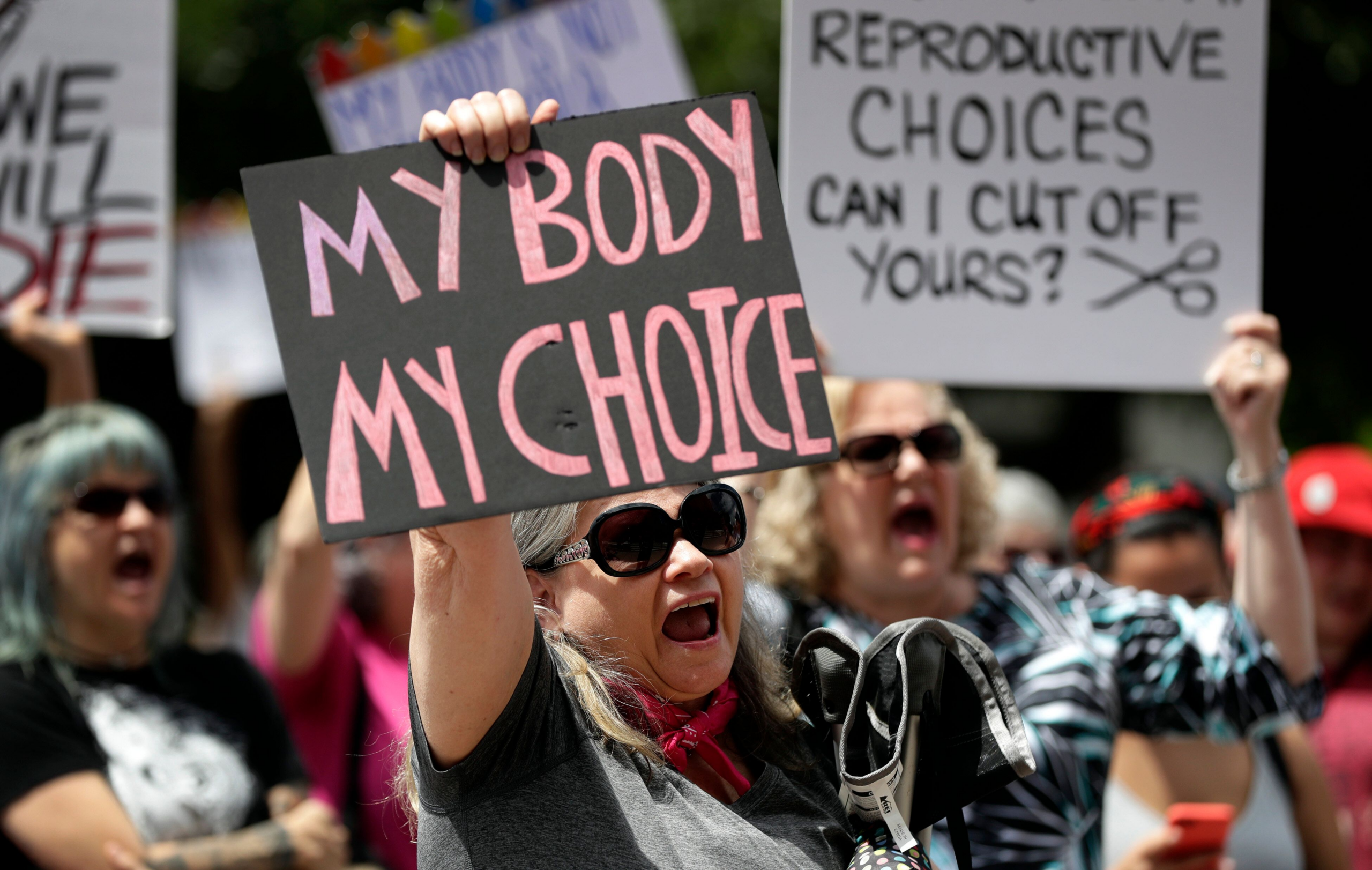The U.S. Supreme Court on Wednesday allowed a restrictive Texas law to go into effect that criminalizes abortion at six weeks and deputizes citizens to enforce the ban.
S.B. 8 effectively bans abortion at six weeks, a time at which many people don’t yet realize they’re pregnant. The bill is more extreme than laws in states such as Alabama and Ohio due to a clause that financially incentivizes private citizens to sue anyone “aiding or abetting” abortion-seeking patients in Texas.
If someone successfully sues a person aiding and abetting the medical procedure, they could receive a bounty of $10,000 and have all of their legal fees paid for by the opposing side.
“The anti-choice movement is determined to decimate reproductive freedom and intimidate providers, pregnant people, and those who love and care for them,” said Adrienne Kimmell, the acting president of NARAL Pro-Choice America. “Make no mistake, this law paves the way for anti-choice extremists to turn their dystopian vision into a horrifying reality ― not just in Texas, but around the country.”
President Joe Biden blasted the Texas state legislature for “blatantly” violating the constitutional right established under Roe v. Wade.
“The Texas law will significantly impair women’s access to the health care they need, particularly for communities of color and individuals with low incomes,” Biden said Wednesday in a statement. “And, outrageously, it deputizes private citizens to bring lawsuits against anyone who they believe has helped another person get an abortion, which might even include family members, health care workers, front desk staff at a health care clinic, or strangers with no connection to the individual.
Texas Gov. Greg Abbott (R) signed S.B. 8 into law on May 19, despite fierce opposition from abortion rights advocates. Pro-choice groups filed a lawsuit in federal district court in July, hoping to stall the bill.
After the district court and then the U.S. Court of Appeals for the 5th Circuit shut down their attempts to block the law while the lawsuit proceeds, the groups filed an emergency request with the U.S. Supreme Court.
The court took no action, however, making the bill law as of 12 a.m. local time.
Texas’ ban on abortion at six weeks will force the state’s 7 million women of reproductive age to travel to neighboring states — most likely Louisiana or Oklahoma — for the procedure. Those two states have a total of only eight abortion clinics. The average one-way driving distance for a Texan seeking an abortion would increase from 12 miles to 248 miles, 20 times the distance, according to the Guttmacher Institute. And, as with most anti-abortion legislation, the new law will disproportionately affect Black and brown women.
As more and more states effectively ban abortion, pro-choice advocates fear the return of back-alley abortions. But some advocates are more focused on the criminalization of the medical procedure and how it can isolate women, according to Kristin Ford, the acting vice president of communications and research at NARAL Pro-Choice America.
“I often say, ‘Think about handcuffs rather than hemorrhaging,’” Ford told HuffPost last week. “It’s not so much that people will have back-alley abortions and be bleeding out in the way that you hear horror stories pre-Roe, but that people will be interrogated by law enforcement, could be arrested and criminalized for the outcome of their pregnancies. When you criminalize everyone around the pregnant person, you’re creating an environment of criminalization, of stigmatizing and isolating.”
The Texas House of Representatives passed another bill on Tuesday that restricts access to medication abortion, a procedure that accounts for more than one-third of abortions in the country. S.B. 4 prevents doctors and providers from administering the pill to women who have been pregnant for more than seven weeks. The bill already passed the state Senate and now heads to Abbott’s desk.
The governor signed a trigger ban into law earlier this year, which will automatically ban all abortions in Texas if the Supreme Court overturns Roe v. Wade. The court will have an opportunity to overturn Roe in the upcoming Dobbs v. Jackson Women’s Health Organization case.
Many abortion rights advocates are worried that Texas’ S.B. 8 will quickly become a blueprint for other red states looking to end legal abortion.
“Texas is a state that has passed restriction after restriction, and this is a time where other states may be looking to Texas for a new twist on abortion bans. Stopping this ban is even more important because we’re no longer just talking about the 7 million women of reproductive age in Texas,” Elizabeth Nash, a principal policy associate at Guttmacher Institute, told HuffPost last week. “At that point, the question really is … What is left of Roe?”
Do you have information you want to share with HuffPost? Here’s how.

